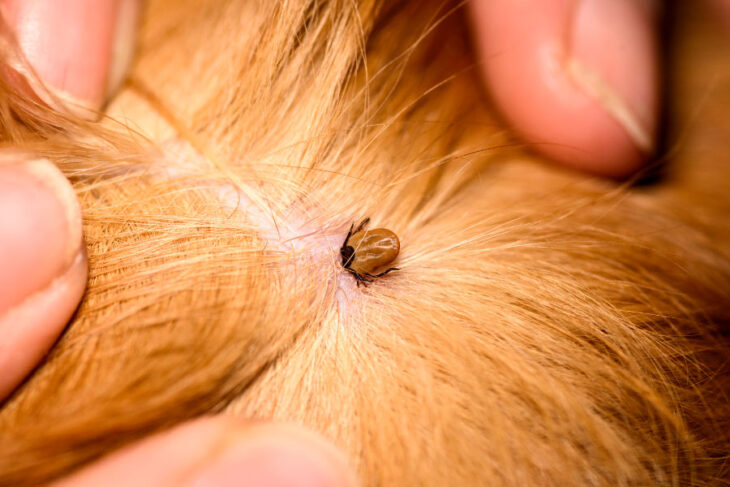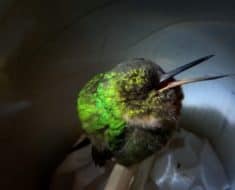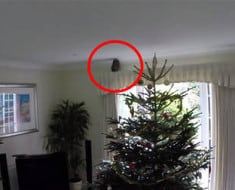
Lucky Dawg
With winter at our heels, we’re all looking forward to sunny days and outdoor activities, but we should also be cognizant of the nuisances that come knocking as soon as the weather brightens up – insects, most notably fleas, and ticks.
Fleas generally won’t bite humans, and they’re not particularly attracted to us. However, they can and will in certain circumstances. Ticks, on the other hand, are not just annoying, but they can also be quite dangerous if not noticed and treated properly.
Today we’ll talk about several of the most efficient home remedies and practices that will hopefully help you combat these pests, so let’s dive a bit deeper into details:
Check your pets more frequently
Cats and dogs are common flea and tick carriers, mainly because they adore playing around taller grass. It’s not surprising to see a pet scratching more often during warmer seasons – they typically do this when they’re hotter than usual, but you should still inspect them whenever they exhibit this sort of behavior just in case.
Dark-haired dogs and cats can give you quite a headache, as both ticks and fleas are of dark brown color. Fleas typically attack parts where hair is the thickest and densest while ticks prefer exposed areas, especially behind ears.
If left unchecked, your pet can transmit these insects to you in no time. That’s why keeping your cats and dogs clean is one of the best ways to stay safe from them.
Create a soap trap
Fleas don’t particularly like soap. However, it is almost pointless to take a shower every time you feel an itch. The best way to eliminate larger hordes of fleas is to create a soap trap, using lukewarm water and dish soap.
Fleas aren’t too accurate with their movements, and to the naked eye, they appear to be bouncing rather than flying. Use a longer plate (it doesn’t need to be too deep) and fill it with lukewarm water with a bit of dish soap to create the trap.
The hard part is locating the area where fleas are hiding during the daytime. Additionally, this trap should be kept away from pets, as they can have mild poisoning if they taste it. On the brighter side, it’s remarkably easy to craft and is super-effective if you know where the pests are.
Eucalyptus oil as a tick repellant
Essential oils have numerous purposes, and killing insects is the one that we’re interested in. Eucalyptus Oil combined with hints of lemon is the typical combination of ingredients that comprise basic insecticides, so it goes without saying that small and weak ticks don’t stand a chance if you use it right.
This oil isn’t aggressive in the sense that it won’t agitate easily irritable skin; you can directly spray it on your clothes and even pets. This will provide a non-odorous shield against most smaller insects, especially spiders and ticks.
Keep in mind that you can experience mild drawbacks if you spray it directly onto your skin. Just to be safe, dilute it first with regular water. This way its efficiency will be somewhat reduced, but you’ll eliminate all the risk factors in turn.
Cut the grass
Taller grass shelters ticks and provides them with a height advantage, allowing them to ‘scale’ their prey more easily. While smaller cats and dogs can still pick some up pretty much anywhere, humans can only catch ticks if they walk through tall, unkempt lawns.
Of course, the process of clearing your yard involves the risk of catching a tick or two along the way, but you’ll considerably reduce the chances of other ones appearing in the near future.
Baking soda for the furniture
Being nocturnal pests, both fleas and ticks will do their best to crawl under your carpets, into the fabric of your furniture, and in small holes in the walls. Some will argue that the fastest and best way to eliminate insects is to vacuum them out.
While this is partially true, this isn’t the most efficient way to address this threat. Both fleas and ticks will grab onto whatever they can and resist vacuum models with mediocre suction power, and given their petite size, there’s no way for you to actually check how effective your method of elimination was.
That’s why you can use plain baking soda to flush them out. Use a brush to gently rub the soda into your furniture’s fabric, leave it for a few hours, and then vacuum the surrounding area (including the furniture).
Lavender and Spearmint as natural flea repellents
Using household herbs is an excellent way to keep fleas away from your home. There are a lot of different types of herbs that fleas seem to hate, including Penny Royal, Lavender, and Spearmint.
Simply having these plants around should prove to be more than adequately effective, but for better results, grind the plants and sprinkle whatever traps you’ve crafted (soap baking soda).
Salt dries insects out
One of the best ways to eliminate sporadic nests of ticks and fleas is to use salt. They’re not particularly attracted to it (nor are they repelled by it), but if they even try it, they’ll almost instantly die. Basically, salt can rapidly dehydrate most types of adult insects, so ticks and fleas shouldn’t pose any problems if they take the bait.
Simply sprinkle a teaspoon of salt around the areas where you suspect these pests to be, and leave the ‘trap’ for a day or two. Since you won’t be able to see whether the trap was effective or not with naked eyes, it is best that you also vacuum these areas just to be safe.
Hire exterminators
The easiest way to eliminate flea and tick infestations is to hire an exterminator. The right professional with the right tools and experience can easily and quickly determine the type of fleas and ticks you’re struggling with, tell you the options in terms of pesticides (and their drawbacks & price), and fix up a solution on the spot.
It may not be cost-effective to engage exterminators if you’re only suspecting that there are more than a few fleas and ticks in your home and yard, so keep this option as your last resort if the other remedies didn’t work.
We hope this article was of use to you and that you’ve learned something new for this year’s flea and tick season. Make sure you are staying safe in these times we are all going through and have a good one, guys!









































